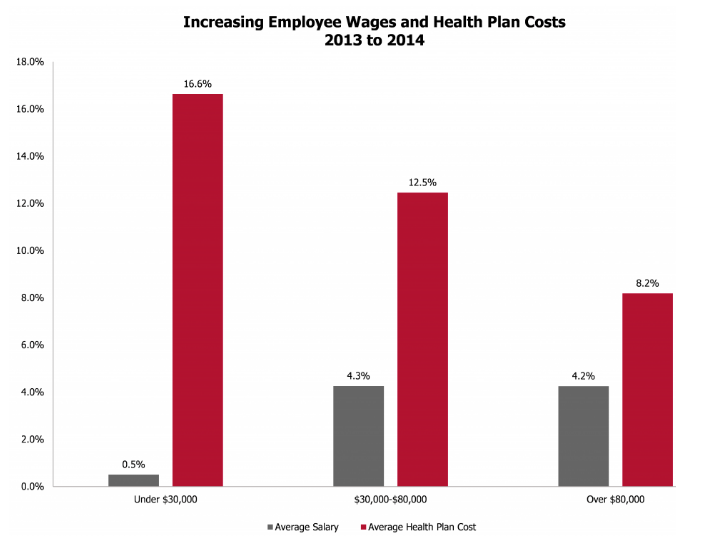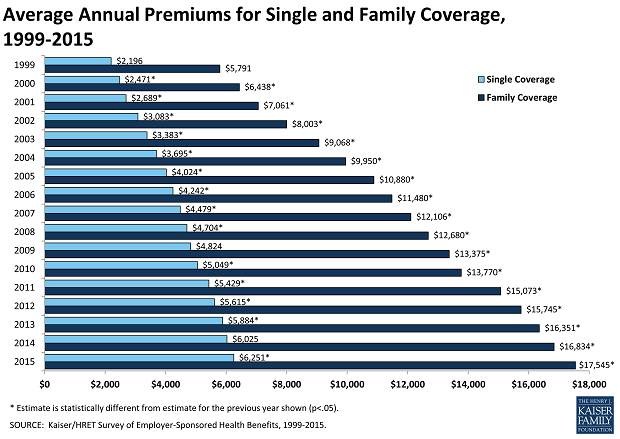Despite recent employment growth and a low jobless rate, many American workers have experienced essentially flat wages for years now. Economists have long argued about the cause of the trend, and new research sheds light on one of the driving factors: high health care costs.
The health care analytics group Human Capital Management Services finds in a new report that growing health care costs are leaving less room in employers’ budgets for employee paychecks. HCMS studied health care, compensation and paid time off data for nearly four million Americans who receive benefits at more than 300 companies.
Related: Get Ready for Huge Obamacare Premium Hikes in 2017
“Health care costs are siphoning money out of employee’s wages,” says HCMS’ CEO Hank Gardner. “And people on the lower end of the totem pole suffer the most.”
The study found that for a majority of private employers, health care costs jumped more than 10 percent in 2014, while employee pay rose a mere 4.1 percent.
Low-income workers were hit the hardest. Wages inched up a mere 0.5 percent for employees making less than $30,000. Employees making more than $80,000 saw their wages rise by 4.2 percent.

Lower-wage workers suffer the most because employers are willing to pay more for higher levels of human capital, according to Gardner. “Lower wage earners have their wages constrained even more because whatever resources the employer had are being given to high paid workers.”
In addition, many employers view low wage employees as expendable. As a result, “higher wage workers have more leverage in terms of generating higher compensation than lower wage workers,” Gardner says.
Waste in the health care system plays a role, too. Wasteful health care spending identified includes overtreatment by medical providers and overconsumption by patients; excessive use of opioids is also a contributing factor, according to HCMS. Gardner calculates that wasteful spending accounts for 30 percent of national health care spending.
While health care costs have been going up for the past two decades, they’ve been accelerating with the implementation of Obamacare. Gardner blames the inefficiencies of government, such as the infamous website malfunction, for contributing to wasteful health care spending.
Related: Here’s Why Your Health Insurance Premiums Are Going Up Again
Big insurance companies are also a problem, Gardner says, because “when you try to talk to them about improving performance, it’s like trying to change the direction of the Titanic.”
Whatever the cause, it’s important to workers and employers alike to get a handle on wasteful health care spending. “You need to reduce health care waste and convert that waste reduction into wage increases,” Gardner says.
Some sectors of the economy are feeling the pinch more than others. Currently non-profits are being hit the hardest because they usually lack the ability to increase revenue and their workers are already paid at relatively low levels, Gardner says. But these issues are spreading rapidly to many other sectors. “The cost increase is threatening business in a major way,” Gardner says. “It’s a huge crisis.”
Ignoring the crisis will backfire, Gardner says. When you don’t pay employees well, you end up with unhappy workers -- and unhappy workers use more benefits, further driving up costs and pinching potential wage increases. “There’s no doubt about it. As health care costs go up, wages will be even more anemic.”






